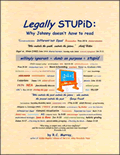DISASTER'S HIDDEN HAZARD: POST TRAUMATIC STRESS DISORDER FOR CIVILIANS
By
John Longenecker
November 9, 2012
NewsWithViews.com
A known but understated hazard of disaster is a Post Traumatic Stress Disorder just for civilians. A more comprehensive disaster preparedness model will include elevating your baseline overall general health before emergency.
The conditions of a disaster's aftermath become more dangerous than the initial event. The aftermath is a zone in time interrupting services and threatening the safety of the area and its population for a very uncertain duration. That uncertainty zone begins before the shaking stops so to speak and continues until services are fully restored and the community recovers. In a disaster, everything comes to a stop while a series of super-stresses begins.
Preparedness for the average household is more than food and water, flashlights and batteries for three days; I call that preparedness lite. Preparedness Lite presumes that help is on the way and that they will be there soon. Preparedness Lite presumes that you are not on your own for long. But, as we have seen in Hurricanes Katrina and Sandy, help does not arrive in time. For many victims, the outcomes from this might as well have been no arrival at all.
The more serious-minded plan is to supplement virtually everything in time of an interruption of all services. In fact, all disaster preparedness is a paradigm shift to deal with going without by supplementing everything as if your life depended on it. In a way, it does. The health of the entire country depends on your household's health and safety and the outcomes of other households in terms of future political planning. Your household's plans might include nutritional supplements to help you not only survive, but to survive well through some of the chief hazards which will come, and they will come.
Why is this health aspect of preparedness important?
When services are interrupted, all services are interrupted and delayed, including first responders and disaster relief efforts. While people must wait, super-stresses are withering their resistance, immunity, strength, and energy, from the attention fo a sick child to enduring environmental exposure. The aftermath is where tolls are taken the highest as time combines to impose super-stresses longer than you can take it in even an average health status. Let's look at these elements.
1) Genetically modified foods are altered at the cellular DNA level to produce vermin resistant crops, longer ripening cycles, shorter ripening cycles, resistance to frost, and other harvest and economy gains. The trade-off for these practices is that nutrients are forfeited. Food picked today for canning, packaging, and general emergency consumption tomorrow are subject to these losses. This means that stored emergency supplies will be only as healthful tomorrow as they are at the time of purchase within this engineered, grocery destined harvest, and it's chancy at best.
2) Just as important is the findings that vitamins and nutritionals dosages have been underestimated and largely uninvestigated, and that the human body actually requires much larger dosages to function properly. For instance, diabetes experts now recommend nutritional megadoses for their patients to help fight that disease. This places supplements – good, potent supplements – higher on the list of importance for personal resistance to persisting hazards. Many vitamins are not enough now, and food – even good food – is not enough. These two become a double disappointment when food is emptier than ever before and when some supplements are not potent enough to fill in the gaps.
3) Topsoil disturbed by an earthquake can launch spores and other microbes airborne to become pneumonias. Aerosolized bacteria of frothing raw sewage can become airborne. Domestic animals can become anxious and rove in packs; released manufacturing toxins can make the rounds and be breathed; unnoticed splinters can impart infections. Centralization of relief efforts greatly delays the arrival of both personnel and products, and many citizens slip through the cracks in the system.
4) Time. How long will you be waiting for relief efforts to get to you? The contact time experiencing these unrelenting stressors is cumulative as your body is worn down to the point where stress overtakes your health.
5) A Post Traumatic Stress Disorder is known. Disaster PTSD is distinguished from the typical plane crash, shipwreck, victim of crime, or military experience; this PTSD comes in a combination of shock, compounded by physical and emotional stress, then a weakening malnutrition to become a physical super-stress for large numbers of civilians. It becomes a residual psychologic impairment when a person or household is overcome by the super-stress of a disaster. This reaction can persist for years. The DSM-III identifies this impairment as a genuine PTSD.
These combine to identify and possibly politicize a whole new crisis to emerge, complete with policy changes, funding, and mandates.
How do we grapple with these and how does it work?
A more comprehensive preparedness will include elevating your baseline overall general health before emergency.
What will make your plans successful is the paradigm shift that all disaster preparedness is supplementation beyond the basic. Whether it is food and water, nutritionals, energy or even Insulin: every single thing you assemble is a supplement to what will be missing in an interruption of services.
| Subscribe to the NewsWithViews Daily News Alerts! |
Nutritional supplements are made in new potencies for those who want them, and in the correct regimen suitable for improving general health. The key for both the fit and the infirm is to stay ahead of the super-stressors so they do not overtake your health.
As with shock, PTSD's best treatment is its prevention. When it comes to the compounded super-stresses, baseline general health is where that resistance begins.
As with storing supplies, the supplements dimension for your household disaster preparedness begins now.
In a crisis, a lot of people will survive, but it's good for the country that we not only survive, but that we survive well.









 Share
This Article
Share
This Article



